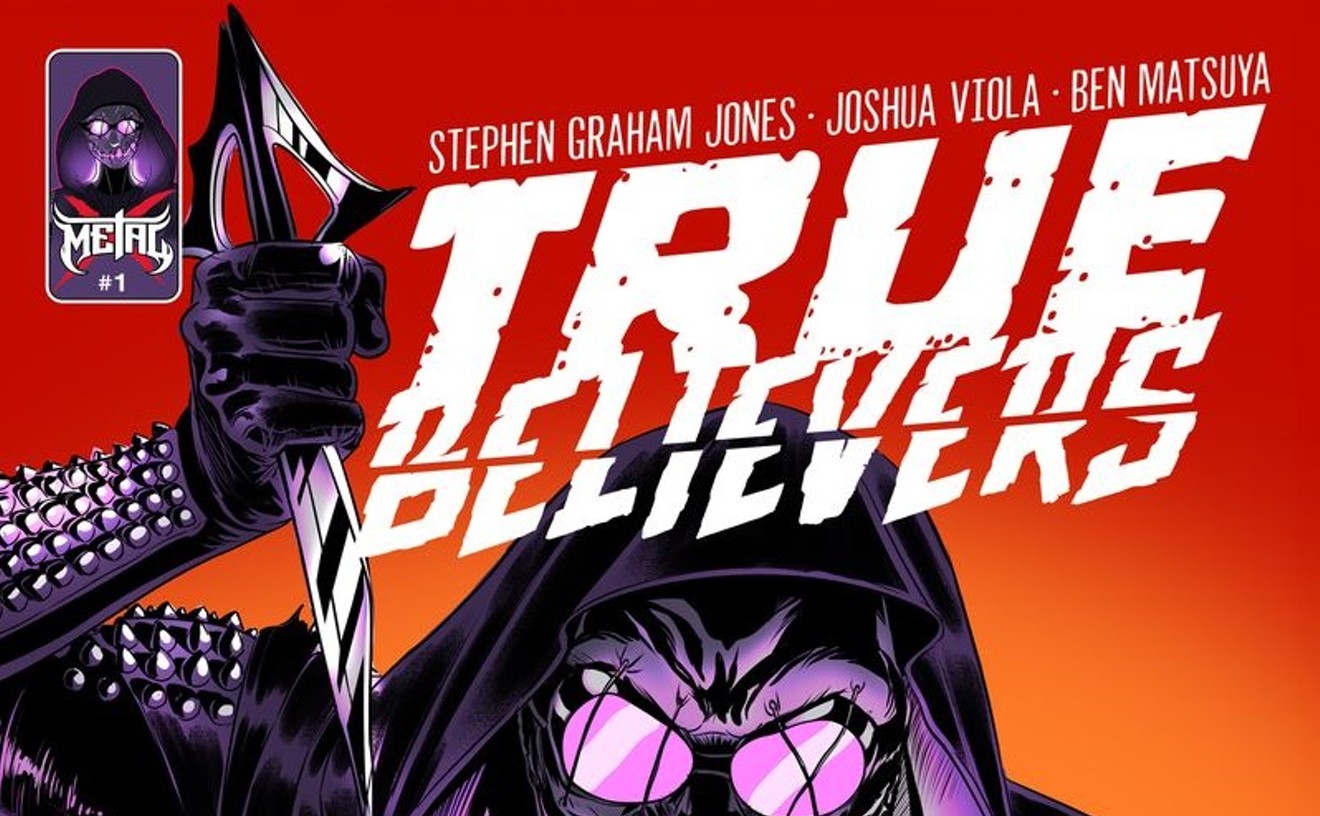With their customary skill and good humor, the Industrial Arts people gleefully dredge up stereotypes out of the stock characters of the Fifties--but with a twist. Busch's sly script is intermittently funny, but the star of this abrasive bit of subversion is funnier. Tim Brown does Mary Dale, movie star, in drag, and his approach is absolutely serious. With nary a wink at the audience, Brown embraces all the mannered behavior of a period star--gracious, graceful and naive. Complex and astute, Brown's comic inventions lock the audience in a kind of perpetual giggle.
It takes a while to warm to Red Scare, though, because the very first character we meet is a nauseatingly self-righteous radio comic named Pat Pilford (perfectly realized by Katie Barker) who fires an actor for holding the wrong political opinions. Pat then goes to visit her dear friend Mary Dale and spars with Mary's less successful movie-star husband, Frank Taggart. Once Mary enters, the audience shifts quickly into laugh mode, and the point of the play becomes obvious.
Mary has asked Pat and another young friend to tea. Husband Frank goes out to get drunk, and the ladies sit down to discuss life. Mary's friend Marta Towers will never be a successful movie star, because she takes acting too seriously. Pat sees through all the Stanislavsky technique to the commie heart that beats within Marta's lovely exterior. Mary, on the other hand, is completely oblivious to Marta's flaws.
Later, Marta meets Frank and tries to seduce him--first into a love affair and then into the Party. She entices him with images of acting in plays like Blood Wedding, When We Dead Awaken, Ghost Sonata and No Exit. Only a communist would want to perform in plays like these. Marta introduces Frank to the nefarious Bertram Barker (Toni Brady), who pressures him into signing what he thinks are admission forms into the Yetta Felson Acting School but what are really Party forms. Poor Frank is hooked now.
The plot thickens as Mary discovers what all these evil Reds are up to: They want to take over Hollywood with socialist realism and destroy the star system--and from Hollywood, the world. They threaten to expose Frank's Russian origins and ruin his life if he doesn't kill his wife. He tries but fails. Mary is not as big a dope as we think. She foils more than one plot, and in the end, good triumphs--along with good taste, white gloves and bad acting.
But the satire sometimes falters a bit. You can only laugh so long at cardboard commies. The show is best at parodying Hollywood itself. When Mary comes out with a long blond wig in a musical production of Lady Godiva, we laugh because we recognize all the clunky Hollywood musicals now available only on late-night cable.
Brown's essential nuttiness is amply supported by a crack cast. Phillip Luna makes Frank's weaknesses pathetically visible. Always an interesting presence on stage, Luna's whining, wincing, frantic Frank storms around the calm center of Mary's ladylike persona. Mary Guzzy-Siegel as the evil Marta is a treat to watch. All these actors are having fun, but Guzzy-Siegel has a particular gift for provoking camaraderie with an audience. Darren Schroader as the sensitive gay hairdresser, Malcolm, is another of the young wonders around town. He makes Malcolm's betrayal the one serious point in the play--a sort of tragic relief from all the broad strokes of comedy.
Director Kelly Wensing keeps the scattered action of the play moving across a simple but charming set, creating several environments instantly with minimal fuss. She keeps the play focused on the madness of its theme, and most of the time it works.
As smooth as this production is, Busch's material sometimes undercuts even the best actors. A long diatribe by Bertram Barker, while ably delivered by Brady, becomes repetitious and irritating.
Peoples' lives were ruined by Joe McCarthy and the House Un-American Activities Committee. And what this raunchy parody fails to ridicule fully is the impulse toward wanton destruction of the guy next door that rises when checks and balances are suspended. As a result, the viewer leaves dissatisfied and uneasy. Maybe the laughs come too easily.










